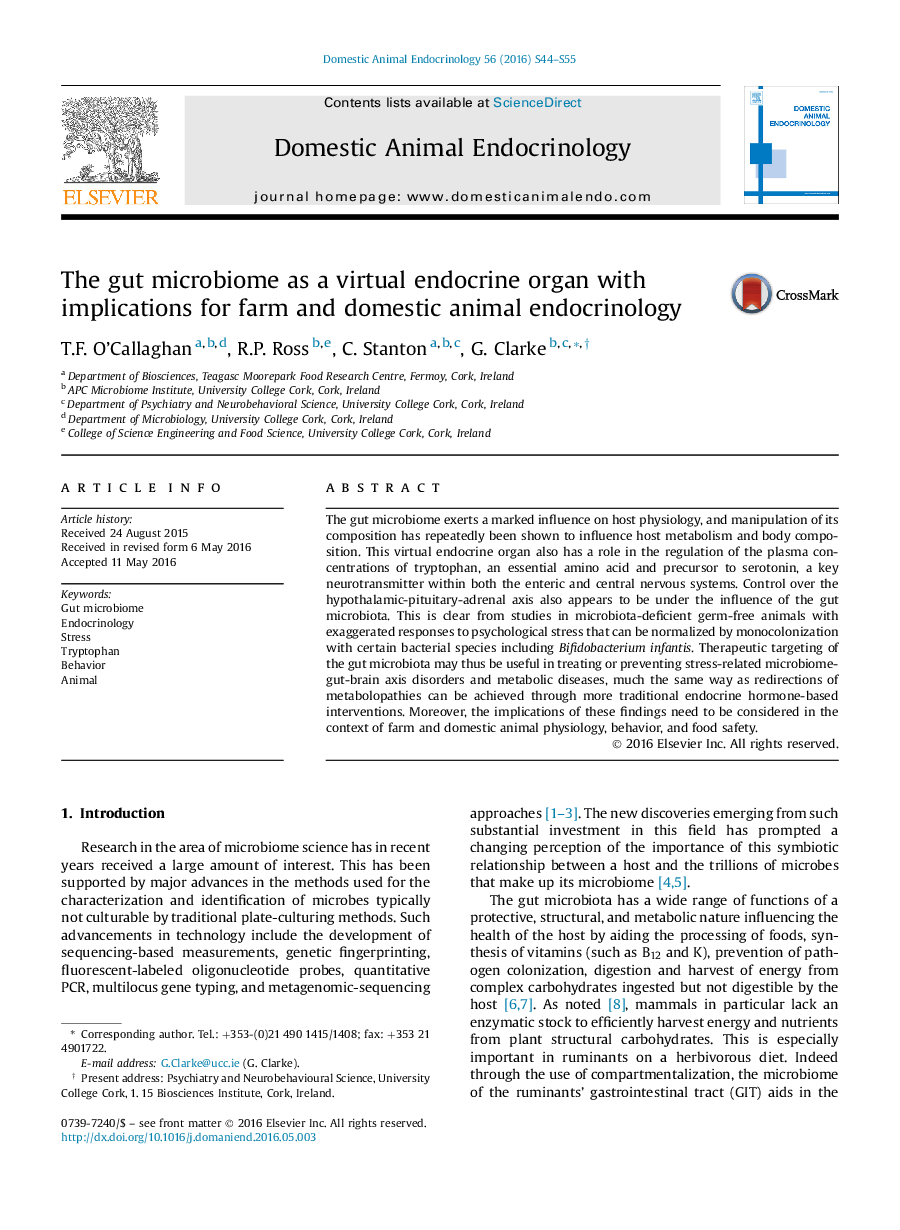| Article ID | Journal | Published Year | Pages | File Type |
|---|---|---|---|---|
| 10961142 | Domestic Animal Endocrinology | 2016 | 12 Pages |
Abstract
The gut microbiome exerts a marked influence on host physiology, and manipulation of its composition has repeatedly been shown to influence host metabolism and body composition. This virtual endocrine organ also has a role in the regulation of the plasma concentrations of tryptophan, an essential amino acid and precursor to serotonin, a key neurotransmitter within both the enteric and central nervous systems. Control over the hypothalamic-pituitary-adrenal axis also appears to be under the influence of the gut microbiota. This is clear from studies in microbiota-deficient germ-free animals with exaggerated responses to psychological stress that can be normalized by monocolonization with certain bacterial species including Bifidobacterium infantis. Therapeutic targeting of the gut microbiota may thus be useful in treating or preventing stress-related microbiome-gut-brain axis disorders and metabolic diseases, much the same way as redirections of metabolopathies can be achieved through more traditional endocrine hormone-based interventions. Moreover, the implications of these findings need to be considered in the context of farm and domestic animal physiology, behavior, and food safety.
Related Topics
Life Sciences
Agricultural and Biological Sciences
Animal Science and Zoology
Authors
T.F. O'Callaghan, R.P. Ross, C. Stanton, G. Clarke,
